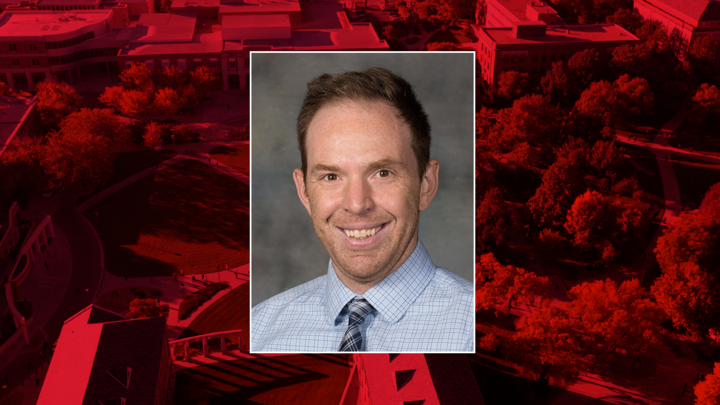The Associated Press reported Nov. 1 on efforts by Sebastian Elbaum and Carrick Detweiler, computer science and engineering, and Dirac Twidwell, agronomy and horticulture, to develop a drone that can set prescribed burns for conservation purposes. Internet news sources that specialize in technological developments had a lot of fun with the story. Slate's Future Tense wrote about the fire-starting drone on Nov. 5. Inverse.com, UAS Magazine, Engadget and Übergizmo wrote about the drone on Nov. 5. Gizmag, Gizmodo and Slashgear followed suit soon afterwards.
In late November, a study showing that stimulant medications prescribed for attention-deficit/hyperactivity disorder can interfere with children's sleep received extensive national coverage, including reports on ABC, NBC, CBS, Fox and NPR. The study was authored by Katie Kidwell, Alyssa Lundahl, Tori Van Dyk and Timothy Nelson, psychology, and published in the journal Pediatrics. U.S. News & World Report, Fox, NBC and ABC picked up a story prepared by the HealthDay news service. CBS News produced its own version, which was carried by numerous CBS outlets nationally. National Public Radio published its story Nov. 24, which was widely varied by NPR outlets across the country.
"Bond, James Bond." Agent 007 gained several headlines for Wheeler Winston Dixon, film studies in November. He was quoted in a syndicated Nov. 4 San Jose Mercury News story about the continuing appeal of Bond movies after 50 years. Then, on Nov. 12, he was interviewed for a Knowledge@Wharton podcast on "The Spy Who We Loved."
Discovery News interviewed Phil Geib, anthropology, for a Nov. 25 story about indications ancient Native Americans in what is now Utah raised turkeys not for food, but for their feathers.
Ingrid Haas, political science, was among experts interviewed by Vox for a Nov. 18 article on the science behind why people fear Syrian refugees.
Science Daily quoted John Hibbing, political science, in a story about new research from Aarhus University in Denmark that found Republicans prefer candidates with deep voices and square jaws. Hibbing, who studies how biology influences political attitude, said the new study is part of a growing body of work that seeks to understand political behavior from biological and psychological perspectives. Research by Hibbing and Kevin Smith, political science, also was highlighted in a Nov. 10 Chicago Tribune article. That study, which included Jeff French from the University of Nebraska at Omaha, found that voting at the polls stresses people out. It was published last year in the journal Physiology and behavior.
Ari Kohen, political science, was interviewed for a Nov. 2 BBC documentary that interviewed U.S. military veterans who are uncomfortable being described as heroes. Kohen has studied the nature of heroism dating back to Achilles in the Trojan War. “We don’t need parades and celebrations, we need people to give us an opportunity when we come home,” one veteran said.
David Loope, earth and atmospheric sciences, was among the experts interviewed in the PBS Nova program “Making North America.” He appeared in “Origins,” the first episode in the three-episode series, which aired Nov. 4.
Deseret News published a Nov. 2 story about findings from Philip Schwadel, sociology, that there are national differences in whether people lose their religiosity when they attend college. The story was carried in a number of affiliated outlets nationwide.
MarketWatch quoted Jeffrey Stevens, psychology, for a Nov. 30 story about how biology and evolution makes it difficult for humans to save toward retirement.
A study led by Tara Warner, sociology, that found minority youth are significantly less likely to believe they will live to age 35 was covered Nov. 18 piece by ThinkProgress and The Economic Times. Vox reported on the study on Nov. 22.



